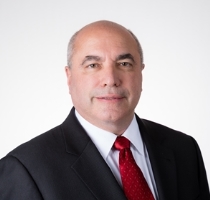Program Management Is Anything but Simple
Interview with Robert Prieto
CEO, Strategic Program Management, LLC
Former Chair, Parsons Brinkerhoff
Former Senior VP, Fluor

Interviewed by Yu Yanjuan
Journalist, Project Management Review: PMR (China)
Introduction to the interviewee
Robert Prieto is now Chairman & CEO of Strategic Program Management LLC. As David Pells has said, he is one of the world’s preeminent authorities on the management of mega programs, large projects, construction management and the global construction industry.
Majoring in Science, he hasn’t received academic training in project management, which is an edge in his eyes as he is in a better position to challenge traditional project management to embrace changes and trends.
As the inventor of 4 issued patents, he is a scientist working in the field of project management.
As a distinguished practitioner, he has participated in numerous large and complex projects. He has taken up many industry roles such as Presidential Appointee of APEC Business Advisory Council and World Economic Forum – Engineering & Construction Governor.
For his work, he has been recognized by a number of awards such as Fellow of the Construction Management Association of America; CMAA Chairman’s Award.
Interview
Part 1: Program Management Requires Broader Strategic Focus and Tighter Integration
Q1. Please use several words / phrases to describe Program Management in your eyes.
Robert Prieto (Prieto): In its simplest form, an organization’s strategic business objectives and desired outcomes are addressed through development of a comprehensive strategic plan. Program management is about translating that strategic plan into a defined set of discrete but interrelated activities (projects) and then managing the delivery and successful completion of these activities in a holistic way.
Program management is the process of providing execution certainty to meet the strategic business objectives of an owner.
Program management requires a broader, more strategic focus than project management and a tighter integration across all elements of the execution process, including:
- Organizational enablement around clearly articulated strategic business objectives, that have been agreed to and will be continuously communicated
- Program definition focused on needs vs. wants
- Stakeholder outreach and engagement
- Establishment of programmatic and technical requirements
- Development of top-level execution strategies, schedules, and budgets reflecting the range of risks that the program could face
- Risk planning and approach to risk management, including appropriate modeling of risks
- Acquisition and contracting strategy, assessing risks, costs, schedules and logistics requirements, employing AI enabled supply chain tools where appropriate
- Execution planning, with a heightened emphasis on the “flows” not just the activities
- Implementation of an integrated management and support toolset, including select use of AI enabled insights
- Program governance and oversight
- Management and integration of defined projects, carefully understanding scope gaps not in the program’s purview and white space risks
- Assessment of cost, schedule, quality, and health, safety, and environmental (HSE) metrics and forecast trends and key assumptions
- Management and allocation of contingencies and ongoing risk assessment
- Ongoing alignment and communication
But program management is anything but simple.
While many of the processes that one may employ resemble the practices of good project management, the focus is very different. Nowhere are these differences more clearly seen than in how the owner’s role shifts under program management delivery.
Q2. It’s common that people mistakenly understand programs as large projects. How will you describe the distinction between programs and projects?
Prieto: There are many possible ways to describe the differences between programs and projects but let me take a simple approach.
Program management is the definition and integration of a number of projects to cause a broader, strategic business outcome to be achieved. It is not necessary for any or all of these projects to be large in their own right.
Program management is not just the sum of all project management activities but also includes management of the risks, opportunities, and activities that occur “in the white space” between projects. It also requires a heightened focus on the flows inside the project as well as those impacting the project from the outside.
While an individual project will employ a specific project delivery approach (design-bid-build, design-build, DBOM, etc.), program management may combine different delivery approaches across multiple projects to best achieve the desired strategic business objectives.
Part 2: Adequate Management Oversight Is Essential
Q3. In program management, how should program managers get the support of top management such as C-suite?
More…
To read entire interview, click here
Editor’s note: This interview was first published in PMR, Project Management Review magazine, China. It is republished here with the permission of PMR. The PM World Journal maintains a cooperative relationship with PMR, periodically republishing works from each other’s publications. To see the original interview with Chinese introduction, visit PMR at http://www.pmreview.com.cn/english/
How to cite this interview: PMR (2019). Program Management Is Anything but Simple: Interview with Robert Prieto; Project Management Review; republished in the PM World Journal, Vol. VIII, Issue VI, July. Available online at https://pmworldlibrary.net/wp-content/uploads/2019/07/pmwj83-Jul2019-Yanjuan-Prieto-Interview.pdf
About the Interviewer

Yu Yanjuan
Beijing, China
![]()
Yu Yanjuan (English name: Spring), Bachelor’s Degree, graduated from the English Department of Beijing International Studies University (BISU) in China. She is now an English-language journalist and editor working for Project Management Review Magazine and website. She has interviewed over forty top experts in the field of project management. In the past, she has worked as a journalist and editor for other media platforms in China. She has also worked part-time as an English teacher in various training centers in Beijing. For work contact, she can be
reached via email yuyanjuan2005@163.com or Linkedin https://www.linkedin.com/in/yanjuanyu-76b280151/.









